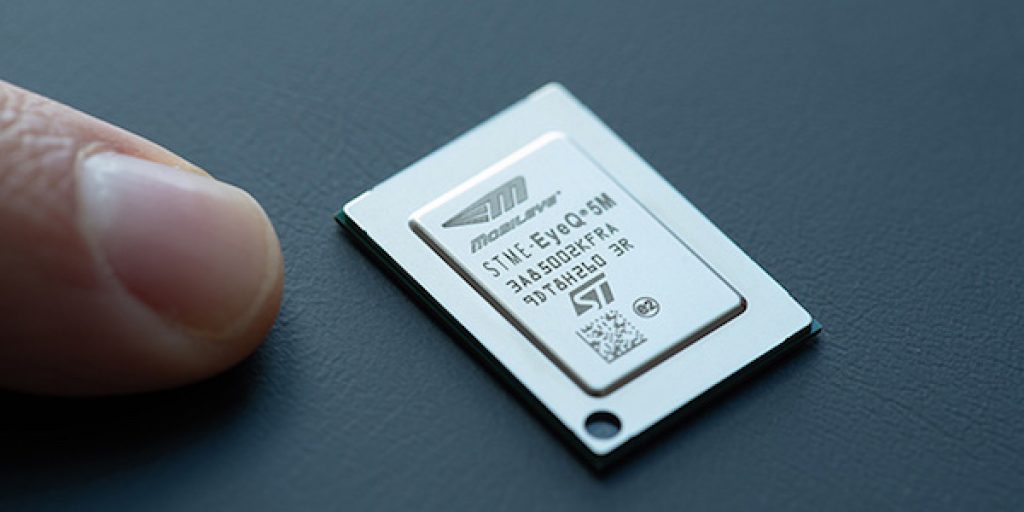What’s New: Mobileye, an Intel company, and NIO, a pioneer in China’s premium electric vehicle market, are engaging in a strategic collaboration on the development of highly automated and autonomous vehicles (AV) for consumer markets in China and other major territories. As part of the planned cooperation, NIO will engineer and manufacture a self-driving system designed by Mobileye, building on its Level 4 (L4) AV kit. This self-driving system would be the first of its kind, targeting consumer autonomy and engineered for automotive qualification standards, quality, cost and scale. NIO will mass-produce the system for Mobileye and also integrate the technology into its electric vehicle lines for consumer markets and for Mobileye’s driverless ride-hailing services. NIO’s variants will target initial release in China, with plans to subsequently expand into other global markets.
“We are thrilled by the promise and potential of collaborating with NIO on electric autonomous vehicles, for both consumers and robotaxi fleets. We value the opportunity to bring greater road safety to China and other markets through our efforts, and look forward to NIO’s support as Mobileye builds a transformational mobility service across the globe.”
–Prof. Amnon Shashua, Intel senior vice president and president and CEO of Mobileye
Why It Matters: The collaboration with NIO builds on Mobileye’s AV leadership and its ability to deliver a new era of transportation for drivers and passengers in China and beyond. With NIO serving as its manufacturing partner, Mobileye’s self-driving system will be accessible to mass markets, further extending the reach of its AV innovation to automotive customers on a global scale. The agreement also marks the first large-scale automaker partner supplying vehicles to Mobileye, as the company builds a global commercial robotaxi fleet that adapts to the mobility needs of the 21st century. The service would help reduce pollution and congestion, while enhancing safety and transit quality, in urban settings around the world.
For NIO, supporting the production and integration of Mobileye’s self-driving system aligns with its mission to provide premium, smart electric vehicles that redefine the user experience for drivers. By joining with Mobileye, NIO aims to maintain its leading-edge position in the premium electric vehicle market – with cars that deliver enhanced safety and functionality, powered by advanced driver-assistance systems technologies and L4 autonomy.
How It Works: Under the planned collaboration, Mobileye will provide NIO with the design of the self-driving system building on the Mobileye AV Series, a L4 AV kit comprised of the Mobileye EyeQ® system-on-chip, hardware, driving policy, safety software and mapping solution. NIO will take on the automotive-grade engineering, integration and mass-production of Mobileye’s system for both consumer automotive markets and for Mobileye’s mobility-as-a-service (MaaS) applications. In addition to integrating the self-driving system into its vehicle lines, NIO will develop a specially configured variant of electric AVs that Mobileye will use as robotaxis, deployed for ride-hailing services in global markets.
William Li, NIO’s founder, chairman and CEO, said: “NIO aspires to be the next-generation car company and a user enterprise. We see electric vehicles as the starting point and the fabric that connects and strengthens communities. Working with Mobileye to enhance the safety and capabilities of our vehicles is in line with our vision to offer premium smart electric vehicles and shape a joyful lifestyle.”
The Mobileye AV Series: The L4 AV kit is a driverless technology solution designed to be integrated in vehicles with autonomous capabilities that help effectively minimize automobile accidents.
- Hardware: Mobileye’s AV Series offers necessary hardware to enable full autonomy in vehicles, including cameras, radars, lidars, cables, modem, GPS and additional mechanical components, all powered by the 5th generation EyeQ system-on-chip. It is purpose-built for low cost and low-power consumption, specifically for autonomous driving with premium deep learning and performance efficiency.
- Driving policy: Mobileye’s proprietary reinforcement learning algorithms enable human-like driving skills for vehicle systems, which pair with the superhuman sight and reaction times possible through the technology’s sensing and computing platforms. Channeling Mobileye’s driving policy technology, vehicles equipped with the AV kit are able to negotiate with other human-driven vehicles on the road in complex situations.
- Safety software: Mobileye’s driving policy is complemented by its Responsibility-Sensitive Safety (RSS) model, which helps ensure an autonomous vehicle will make safe decisions. RSS is an open and transparent formal model that provides safety parameters for AV decision-making, formalizing common sense human-centered concepts of what it means to drive safely. While the planning behind driving policy gets vehicles from Point A to Point B, RSS helps keep them safe along the way.
About Intel
Intel (NASDAQ: INTC), a leader in the semiconductor industry, is shaping the data-centric future with computing and communications technology that is the foundation of the world’s innovations. The company’s engineering expertise is helping address the world’s greatest challenges as well as helping secure, power and connect billions of devices and the infrastructure of the smart, connected world – from the cloud to the network to the edge and everything in between. Find more information about Intel at newsroom.intel.com and intel.com.


